Prologue:
This is not really a comedy but without a sense of humour and the odd injection of sarcasm this injured worker would explode from the frustration and disappointment that being in this system has created.
I am heading back to conciliation on May 13 to battle for part-payments of compensation since declaring in December 2012 that I have a limited capacity for part-time work. I am also disputing my WorkSafe authorised Agent’s refusal to pay any of my medical expenses over the last 2-3 years.
Acts 1 and 2 can now be written but Act 3 will have to await the outcome of the conciliation conference. But as you will see, the outcome could well provide the comic highlight of the performance.
You in the audience may laugh, clap or cry as you read my sad little play.
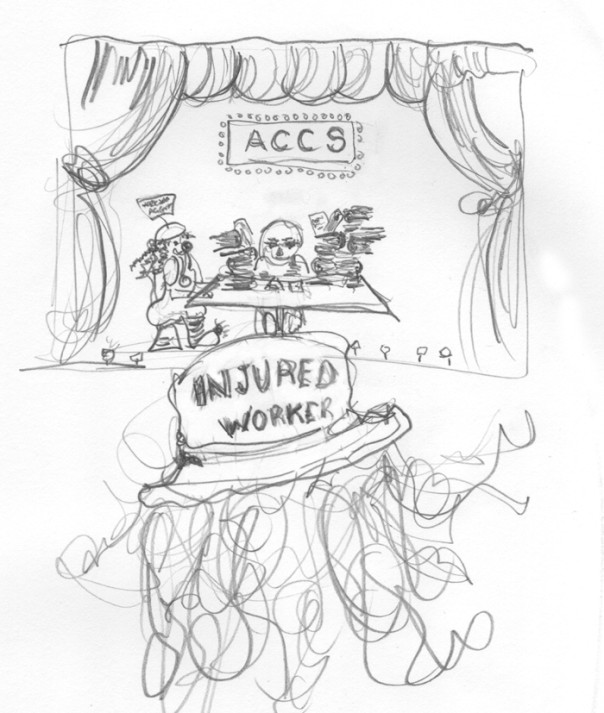 Act 1. The application process
Act 1. The application process
The curtain goes up when in December 2012 I declare that I have a part-time work capacity. My full ‘indefinite’ certified payments were brought to a screeching halt two months later. Not wanting to keep you in suspense, I can tell you that this date marked the end of my payments.
But it took until June 2013 before I had earned the right to lodge a ‘valid’ application for part payments and that happy event occurred when my hours of work reached the 15-hour minimum. Yes, there is a threshold below which part-time work is not remunerated!
One would logically think that a person who can only work less than 15 hours per week is deemed to be unemployable at that level and should be eligible for full weekly compensation. But logical thinking is sometimes hard to find within this system.
I was not offered any assistance by the Agent while attempting my return to work in my profession. I was not offered retraining for any other job but I kept my skills up-to-date through online learning.
No one was sent out to assess my work setup, and my employer (Theo and I are self-employed) was not offered any advice on vocational rehabilitation. In short, the WorkSafe Agent had failed to do the very thing we assume they get paid to do – help me return to work.
However, I must say that this was the second most substantial progress I had made since my work place accident occurred in March 2007, the first being given my correct diagnosis after 4.5 years in limbo.
The response of my Agent to receipt of the correct diagnosis was to decide that ‘it has no relevance to your work injury’, a blatantly obvious tactic to exempt it from paying for my medical treatment.
I duly attended the Medical Panel assessment and hoped that it would endorse my application for part payments of compensation.
Although the Panel agreed that my current work hours were medically appropriate and even outlined details relating to my work setup, some 70 days after receiving this authoritative opinion (and 10 days late, without any excuse being given) the Agent responded by rejecting my application.
Amazingly, the Agent who up until this time had been invisible and silent suddenly found its voice and now had a fair bit to say.
The Agent alleged that I have the capacity to perform more work than the certified 15-hours a week and that I possess more employable skills than I had disclosed to the Medical Panel. It also disputed the value of my part time wage.
I was left with no choice but to contest the decision and proceed to conciliation.
In truth I did have another choice. I could ask the Agent for a senior review within the same organisation. This was a Hobson’s choice – take it or leave it!
I immediately filled out the conciliation form and let my acting technical manager (i.e. the Agent) know that a senior review can achieve nothing else but to provide one more act in this comedy of errors, and that it allows some extra time for interest to accrue on my back pay (should I ever receive compensation).
Act 2. Preparing for conciliation
I am now at the tail end of a 5-week period of frenetic exchange of additional information between myself, the conciliator at the Accident Compensation Conciliation Service (ACCS), and the WorkAssist employee who will represent me at the conference.
This activity is known in comedy circles as performing a ‘snow job’. Basically it involves swamping the conciliator with reams of paper work and hope that he/she is blinded by the snow. It is also a deliberate attempt to terrify the injured worker (and hope they get the message and fall off the planet etc.)
Let me now set the possible scenarios as to how the conciliation process may be played out on Tuesday next.
Scene 1
The conciliator knows nothing about my complex case and even though he/she has been provided with the latest Medical Panel Opinion containing the complete answers to the questions subsequently raised by the Agent, all information provided has to be taken into account, whether it is relevant or irrelevant, true or untrue, misleading or helpful.
This process is highly stressful to the injured worker (me!) who just wishes to be heard, to be believed and to be understood.
So I am preparing to repeat myself… to play along with this performance and perhaps provide a source of amusement for the Agent and for the Conciliator, who no doubt have seen the same scenario played out many times before.
I will be reminding the conciliator that I am an artist and graphic designer. And that I am limited to the 15-hours/week as outlined in my capacity report, which by the way are exactly the same as those documented in the Panel’s Opinion.
I will recite again how I manage to work with difficulty, which again is clearly stated in that same report.
I will repeat that I could easily have decided to remain on full weekly payments and not said a word about trying to get back to my work.
I will clarify any or all details the conciliator and Work Assist representative may have failed to understand, in case they have been blinded by the Agent’s ‘snow job’.
The conciliator might be tempted by the Agent to view my chronic pelvic pain as being a psychological condition, as was incorrectly stated in the 2009 Medical Panel Opinion, which having been unable to diagnose my condition, fell back on the old chestnut – “it’s all in her mind”.
The conciliator may be tempted by the Agent to think along these same spurious lines and find that a nerve stimulator and all the other treatment I have received was not appropriate for a person with an alleged psychological condition.
But in the unlikely event that the injured worker (me) happens to achieve a positive outcome against these formidable odds, this success would prove to temporary, with the conciliator and the Agent eventually letting me “in on the joke”. The dispute that was manufactured by the Agent can only be resolved by convening yet another Medical Panel! The same “process” will once again commence. This could go on for ever!
Yes, by fair means or foul this Agent will continue to place obstacles in my path to deny me payment of compensation. Till “death us do part” is not restricted to the marriage vows.
And then the curtain will drop, the show will be over and all the actors will go home. But one may be disappointed … yet again!
Scene 2.
There is an alternative but much less likely scenario that has a happy ending. Of course, I might be dreaming!
When the curtain goes up I am being congratulated by the conciliator for my successful effort to find a scientifically credible diagnosis (and one that I found was listed in the WorkCover Impairment Assessment Guides) and thereby get myself out of a “hell hole” of uncertainty.
The conciliator will note with approval that Theo and I have renovated our home and re-ordered our lives in order to help me in my return to work.
Theo is commended on how much he cares for and assists me so that I can realise some capacity to perform work within my artistic field.
I am even asked to document my struggle for justice in case it might help someone else in a similar situation.
I am thanked for pointing out the misleading information produced by my Agent and the unfair tactics it has employed to prevent me from obtaining my justly deserved payments for compensation and treatment.
The conciliator accepts that the one time I spoke out and told my story for the purpose of advocacy for those with pelvic pain should not be taken as an employable skill that was deliberately hidden from the Medical Panel. It actually happened well after the Panel’s assessment! For the record, I was given considerable and detailed help in preparing my talk over 4 days for this 25 minute speech, that was given in front of over 180 pain specialists.
I am also congratulated on my weblog, which has been an important tool in my advocacy for those with pelvic pain (but I could not have maintained it without the practical hands-on assistance of my various supporters).
The Agent will be told in no uncertain terms by the conciliator that most of the art displayed on my website was devised and executed before my injury took place, and more to the point, it is a skill I paid a premium for.
Finally, the Conciliator will express anger at the enormous waste of time, money and effort that has resulted from the actions (and non-action) of my WorkSafe authorised Agent. The non-action relates to the total failure of the Agent to assist me to achieve my goal to once again become a productive artist and designer.
Act 3. The outcome
The final act commences at 3:30 on May 13, 2014, be sure to reserve your seats.
I would like to acknowledge the assistance that has been provided voluntarily by a number of people, including all professionals who have provided their own details for their related posts. Thank you to Anne Florence Plante who provided all her research (and who instigated the creation of this website). Thank you to Professor Stephen Gibson and Eve (medical writer & communications consultant), without their practical advice and considerable logistical input, it would have been impossible for me to be able to act in the role of an advocate for those with chronically painful conditions of pelvic pain. Thank you also to Theo, to my dictation software and modern-day technologies that assist me daily*.My personal experiences of the Workers’ Compensation system have been translated into understandable language by Dr John Quintner, Physician in Rheumatology and Pain Medicine. He has been able to draw upon his long experience in these matters. I am extremely grateful for his guidance. *Refer to the Medical Panel Opinion December 2013

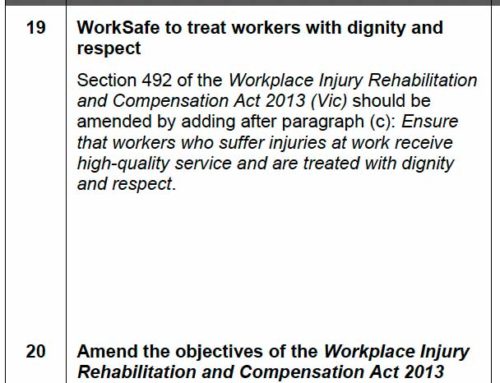
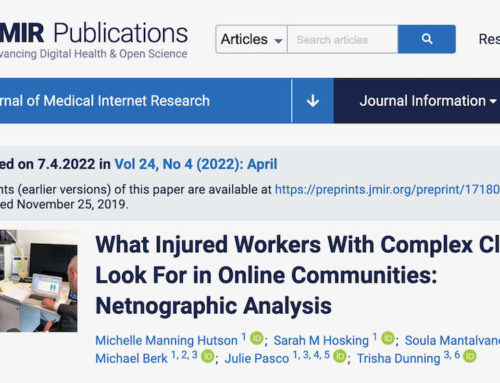


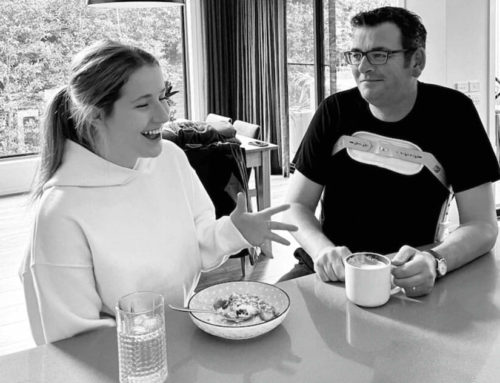
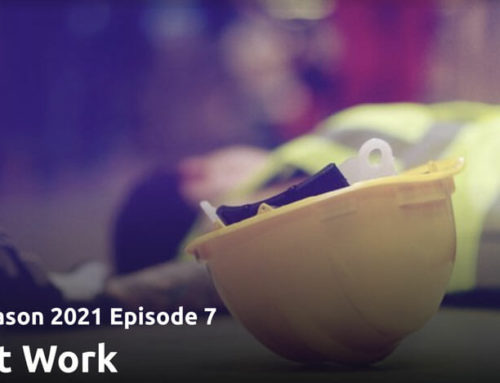
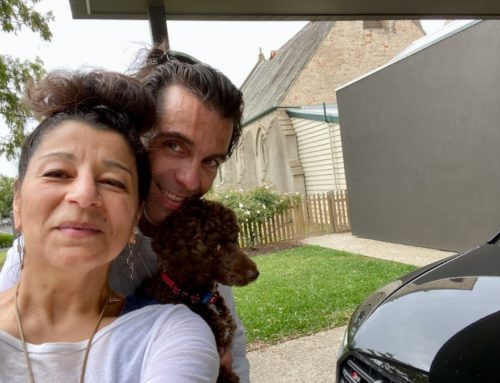
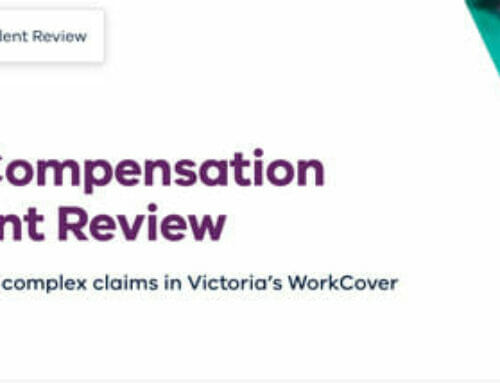
Let us hope that the Victorian Ombudsman’s intervention will result in significant progress, both with addressing your legitimate complaints about WorkCover’s behaviour towards you and the reluctance of your WorkSafe-appointed Agent to meaningfully and honestly engage in the Conciliation process and to pay you your long overdue weekly part-compensation payments.
Soula, I might add to your expressed concerns those of a wider issue that seems to have flown under the radar, as it were. When statutory authorities such as Comcare Australia soon move to outsource claims management functions, the very same Agents and their respective insurance companies will be putting up their hands to tender for this potentially lucrative business. One would hope that their behaviour towards you, and towards many other compensation claimants, would be closely scrutinized by these authorities prior to them signing off on the respective contracts. Other players in the system, such as providers of vocational rehabilitation services, would need to know whether their professional independence and integrity might be threatened when such arrangements are in place. Bonus payments (which are really bribes) currently being offered to them, provide a fore-taste of such threats that might actualize under the new arrangements. There is much at stake for the health and welfare of compensation claimants. Perhaps my hopes for transparency of these arrangements will prove to be pious ones. Nonetheless, I feel that it is a good opportunity to raise these concerns now that you are are in the process of concluding your sad little play – “Yet Another Comedy of Errors”.
I think what has been clarified to both Theo and I from my experience with the Agent and WorkSafe is the care factor really is zero from both parties. The Agent seems to be given incredible authority, and I will reveal what I mean by that in the next post when i document the illegal request posed to Theo and I during the conference. The ‘cowboy’ like actions the WorkSafe Agent boasted to us showed he has no qualms throwing his weight around, even raising his voice and becoming angry through, what should be, a professional conference.
I believe WorkSafe don’t care how they get their hands on the injured worker’s rightful compensation and neither does the Agent. They are accountable only to themselves and therefore throw their weight around as they please. Not that Theo or I were intimidated, for us it reinstated the situation is all about our Government keeping premiums and preventing paying claims. Sadly with this goes support in the form of treatment and return to work help for the injured worker. Those within the system attempting to help seem to get caught up in processes and paperwork rather than helping the injured worker.
Putrid setup for the injured worker, win/win for our Government.
Soula, I look forward to reading Act III in due course. So far, you have effectively highlighted the dangerous situation in which compensation claimants can find themselves when a statutory body (such as WorkSafe Victoria) outsources its responsibilities for ensuring fair and decent claims management to a commercial sector that is not renowned for showing empathy and compassion towards injured people. The necessary checks and balances required for the efficient operation of such a complex system are very difficult to locate. The inordinate delay in WorkSafe Victoria responding to your complaint could be taken as yet more evidence of this administrative deficiency.
Thank you Bobbi, I didn’t realise you were from Boston. Love that saying and I’ll happily accept Soula Strong’ until Tuesday afternoon when this theatre ends (or will it!?). I have very many times in the last few months regretted not taking the much less difficult path. I’m glad to hear you did and are able to manage life this way. Thanks for the message xx
P.S. Its hard for us to understand that business gives no Stars fot us trying to work etc. It all or nothing ! Always about bottom line. I had to make a decision to try to work part time or live my best life living my life in the best way I can ~ enjoying, appreciating life etc. I choose the later. I am so happy I did !!
Hi Soula,
It sounds as i you have an amazing skilled team around you. With all your work and their work, you really can’t miss. Stay strong ~ as we say in Boston -Boston Strong, we say for you SOULA STRONG !
Hugs and prayer and much gratitude for paving the way ~ with love, Bobbi